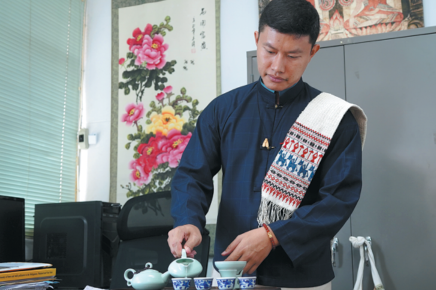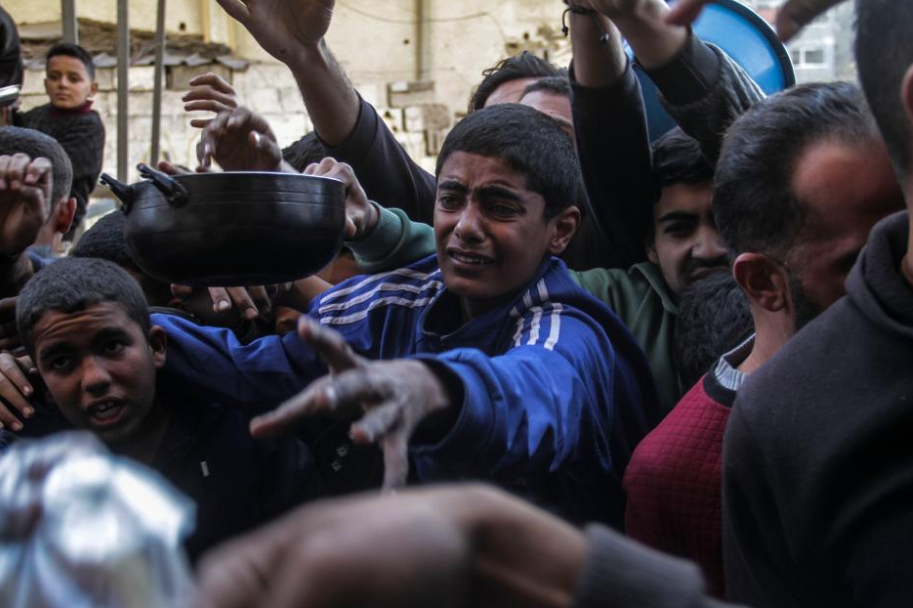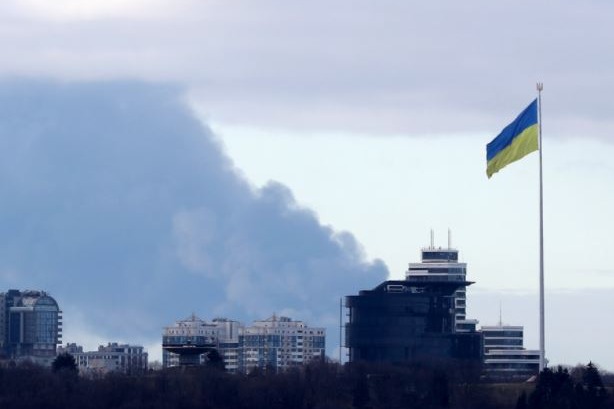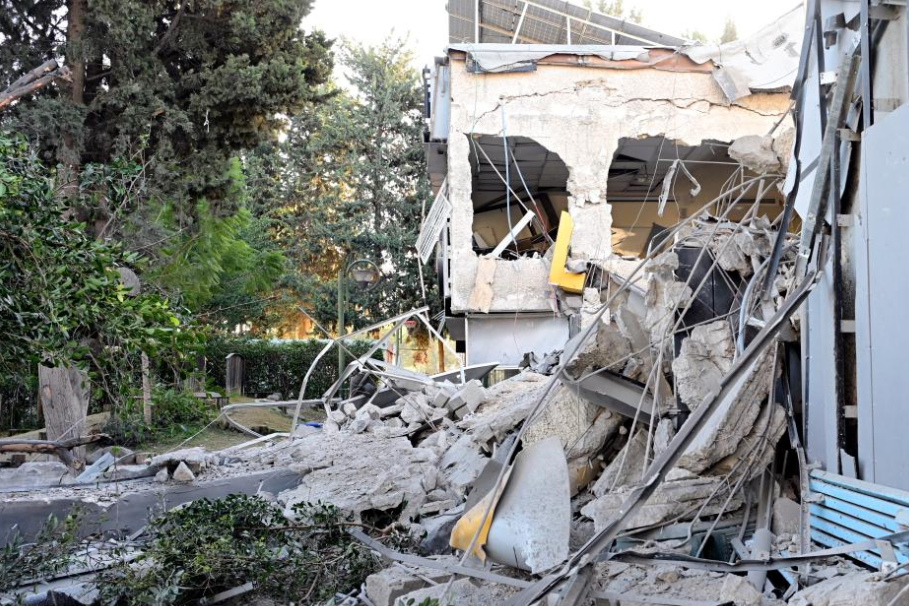Israel vows response to Houthis
Strikes escalate tensions as Gaza hospital forced to close after shelling


Israeli Prime Minister Benjamin Netanyahu said on Sunday that Israel would "act with force" against the Houthis in Yemen and called on Israelis to be steadfast.
"Just as we acted with force against Iran's (other) allies, we will act against the Houthis," Netanyahu said in a video statement, a day after a missile fired from Yemen fell in the Tel Aviv area, causing mild injuries to a number of people.
The Houthi attack followed a series of Israeli airstrikes on Thursday, which targeted Yemen's capital Sanaa as well as the ports of Hodeidah, As-Salif and Ras Issa. The strikes, which the Israeli military said were aimed at Houthi infrastructure, killed at least nine people.
Netanyahu, strengthened at home by the Israeli military's campaign against Hezbollah forces in southern Lebanon and by its destruction of most of the Syrian army's strategic weapons, said Israel would act with the United States.
The Houthis have launched repeated attacks on international shipping in waters near Yemen since November last year in support of Palestinians over Israel's military campaign in Gaza.
On Sunday, Israel ordered the closure and evacuation of one of the last hospitals still partly functioning in a besieged area on the northern edge of the Gaza Strip, forcing medics to search for a way to take hundreds of patients and staff members to safety.
The head of the Kamal Adwan Hospital in Beit Lahiya, Husam Abu Safiya, told Reuters via text message that obeying the order to shut down was "next to impossible" because there were not enough ambulances to get the patients out.
"We currently have nearly 400 civilians inside the hospital, including babies in the neonatal unit, whose lives depend on oxygen and incubators. We cannot evacuate these patients safely without assistance, equipment and time," said Abu Safiya.
"We are sending this message under heavy bombardment and direct targeting of the fuel tanks, which if hit will cause a large explosion and mass casualties of the civilians inside."
Meanwhile, Iran's Supreme Leader Ali Khamenei said on Sunday that the country neither has nor needs any proxy in the Middle East.
"Some constantly say that the Islamic Republic (of Iran) has lost its proxy forces in the region. This is yet another incorrect statement. The Islamic Republic does not have proxy forces," Khamenei said at a meeting in Teheran.
Resistance forces in the region have been fighting for their own beliefs and faith, not on behalf of Iran, he said.
"If one day we decide to take action, we do not need proxy forces," he said, highlighting the country's capability of acting independently if necessary.
Regarding the recent developments in Syria, Khamenei said Syria was "thrown into chaos" by groups backed by " (certain) foreign governments", exploiting Syria's "internal weaknesses".
He denounced Israeli occupation in Syrian territories, saying he expects resistance from "zealous and brave Syrian youths" against Israeli advances.
A militant alliance led by the Hayat Tahrir al-Sham group waged a major military operation from northern Syria on Nov 27. It swept southward, captured the capital Damascus and overthrew former president Bashar al-Assad's government within 12 days.

Diplomacy in Syria
In Damascus, Hayat Tahrir al-Sham commander Ahmed al-Sharaa and visiting Turkish Foreign Minister Hakan Fidan held talks on Sunday, during which both sides vowed to strengthen bilateral relations.
Speaking at a joint news conference, Fidan expressed optimism for a "brighter future" for Syria and promised Turkiye's support in rebuilding Syria's infrastructure, restructuring its institutions and returning displaced Syrians.
"Terrorist organizations have no place in Syria's future," he said, taking aim at the Kurdistan Workers' Party and its alleged affiliates in Syria, a party designated as a terrorist organization by Turkiye.
He urged Israel to stop its military actions in Syria and respect the country's sovereignty and called for an end to international sanctions against Syria.
Al-Sharaa called Turkiye "a friend of the Syrian people", saying both sides aim to build "strategic relations befitting the future of the region".
"It's unacceptable for any group in Syria to possess weapons," he said, stressing the need to disarm all factions across Syria.
Also on Sunday, a Saudi Arabian delegation led by a royal court adviser met with al-Sharaa at the presidential palace in Damascus, according to Al-Arabiya TV.
Xinhua and agencies contributed to this story.
































